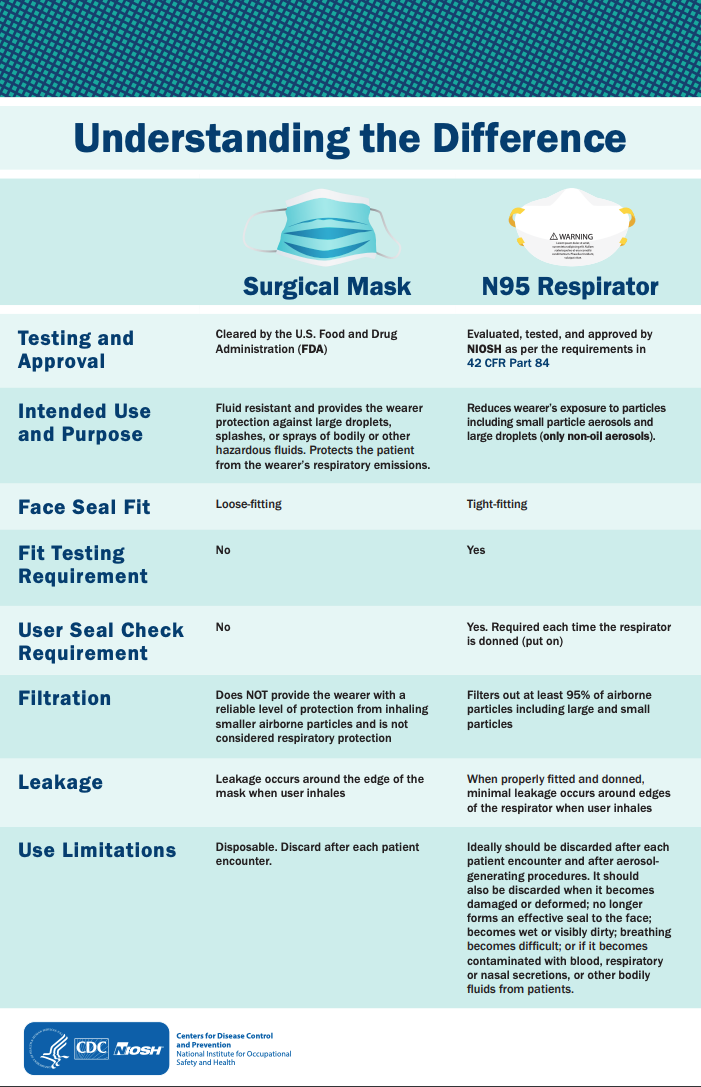No, You Really Don’t Need A Surgical Mask to Protect You From Coronavirus

Click here to read the full article.
Following increasing reports of cases of the novel coronavirus (COVID-19) in the United States, the surgeon general took to Twitter on Saturday to warn panic-driven citizens to quit buying up surgical masks (sometimes called “courtesy masks”) — because a lack of supply of these materials would increase the risk for health care providers treating patients and their communities.
“Seriously people — STOP BUYING MASKS! They are NOT effective in preventing general public from catching [coronavirus],” U.S. Surgeon General Jerome M. Adams twitter account posted alongside the Centers for Disease Control and Prevention’s COVID-19 resource page. “But if healthcare providers can’t get them to care for sick patients, it puts them and our communities at risk!”
More from SheKnows
Kate Hudson Wears Face Mask on Flight, & Fans Insist She's Doing Coronavirus Protection All Wrong
The CDC Just Warned of Coronavirus 'Disruption' in the U.S. and Parents, Take Note
Seriously people- STOP BUYING MASKS!
They are NOT effective in preventing general public from catching #Coronavirus, but if healthcare providers can’t get them to care for sick patients, it puts them and our communities at risk!
https://t.co/UxZRwxxKL9— U.S. Surgeon General (@Surgeon_General) February 29, 2020
Though wearing surgical masks of some kind has been popular among various groups of people dating back to the 1918 influenza pandemic — and there are studies showing that the masks can be effective in certain scenarios to protect against the flu — the prevailing narrative from healthcare officials in 2020, particularly when it comes to coronavirus, is that the vast majority of the public doesn’t need these masks and shouldn’t be buying up masks that could otherwise be available for the medical community (something reportedly happening as online retailers up the prices on these materials, exploiting the panic and helplessness people are feeling).
In a press briefing late last week, Dr. Michael J. Ryan, executive director of the World Health Organization’s (WHO) health emergency program also noted that masks are most useful and most needed in medical settings — as these providers have the most direct contact with infected patients. “There are severe strains on protective equipment around the world. Our primary concern is to ensure that our front line health workers are protected and that they have the equipment they need to do their jobs,” Dr. Ryan said.
When is it appropriate to use a face mask?
When it comes to face masks there are two different models that people are typically referring to: the N95 Respirator and your standard surgical mask.
For the former, since they require a professional fit test and needs to be worn tightly to a person’s face, they are a bit complicated for every day use and, as Adams said in an interview with Fox & Friends on Monday, carry the risk of being worn incorrectly and having the wearer fidget, touch their faces and otherwise mess with the integrity of the mask. The more commonly seen surgical mask is a loose-fitting mask designed mostly as a barrier between respiratory emissions (all the gross fluids that can get people sick) and is less likely to be considered useful respiratory protection for a healthy person wearing it.

In an email to SheKnows, a spokesperson for the American Academy of Pediatrics (AAP) said that the org is “following the CDC’s lead on this topic.”
Per the CDC, that guidance states that the agency “does not recommend that people who are well wear a facemask to protect themselves from respiratory diseases, including COVID-19. Facemasks should be used by people who show symptoms of COVID-19 to help prevent the spread of the disease to others,” and, again, they emphasize that “the use of facemasks is also crucial for health workers and people who are taking care of someone in close settings (at home or in a health care facility).”
So basically a face mask is really only appropriate if you are showing symptoms to prevent the spread of disease to others or if you’re taking care of someone who is showing symptoms. And, regardless, officials say you should prioritize other strategies (aggressive hand washing, not touching your eyes, nose or mouth and frequent disinfection of pretty much everything) instead.
“There are limits to how a mask can protect you from being infected,” Dr. Ryan added during the press briefing. “The most important thing everyone can do is wash your hands, keep your hands away from your face and observe very precise hygiene.”
What can I do to protect myself and my family from getting sick?
Advice from the CDC and WHO remains consistent with Dr. Ryan’s assessment and with their guidelines for preventing respiratory illness:
Avoid close contact with people who are sick.
Avoid touching your eyes, nose, and mouth.
Stay home when you are sick.
Cover your cough or sneeze with a tissue, then throw the tissue in the trash.
Clean and disinfect frequently touched objects and surfaces using a regular household cleaning spray or wipe.
Wash your hands often with soap and water for at least 20 seconds, especially after going to the bathroom; before eating; and after blowing your nose, coughing, or sneezing.
If soap and water are not readily available, use an alcohol-based hand sanitizer with at least 60 percent alcohol. Always wash hands with soap and water if hands are visibly dirty.
Best of SheKnows
Sign up for SheKnows' Newsletter. For the latest news, follow us on Facebook, Twitter, and Instagram.

